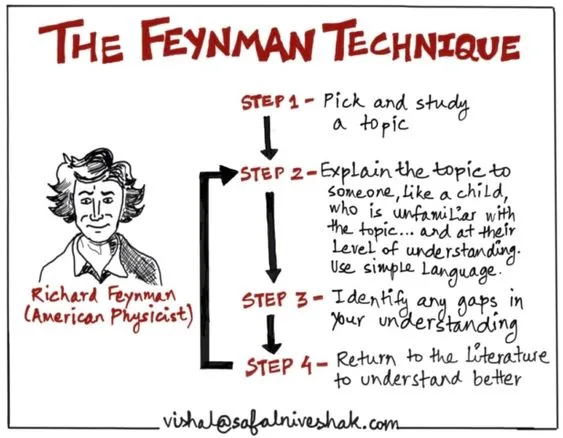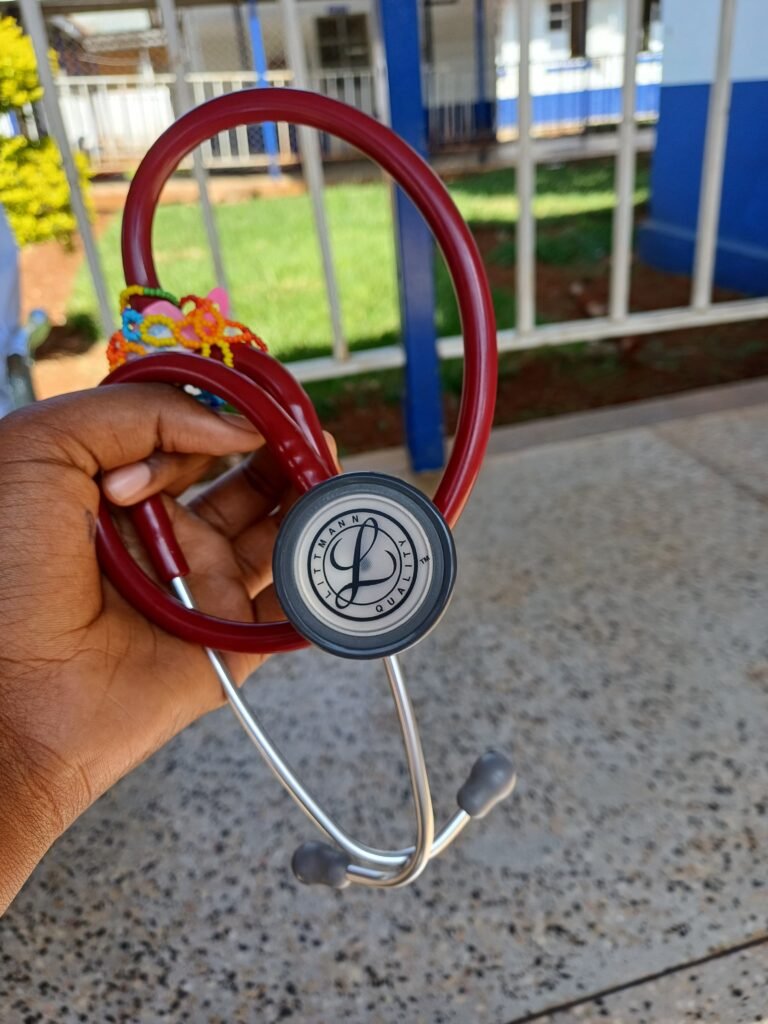Any intelligent fool can make things bigger, more complex, and more violent. It takes a touch of genius—and a lot of courage—to move in the opposite direction.
E.F. Schumacher
The Feynman Technique is one of the best ways to approach learning any subject. This is because it involves active learning, whereby you ensure that you are not only taking in information but also you are testing your grasp on the subject. This technique was developed by Richard Feynman, who was a Nobel Prize-winning physicist, to help people better approach the process of learning.
Learning can broadly be categorised into passive and active learning. Passive learning is described as simply going through texts of information, without processing it. In the best-case scenario, you might remember just enough to pass an exam. This approach is ineffective as it will only work in the short-term, and will result in only acquiring facts that one cannot apply in a practical aspect. Active learning on the other hand involves learning in a way in which you can explain the information in simple terms and apply it in many different contexts. Following the Feynman technique will allow you to take advantage of this process to become a master in whichever field you want to pursue.
The process
Choose a concept you want to learn about
Write everything you know about the subject you want to learn on a blank sheet. You may use memory from a previous lecture or class. This may be the most daunting step, because you may find that you are unable to recall much if anything at all. Not to fret, this only serves as a stepping stone to research on the topic. Add the new information to your sheet. Your research should be guided by your blind spots and therefore you will be able to highlight the parts that you found the most difficult to remember.
Explain it to a rubber duck/ child
This step is the most fun because you get the chance to involve some props in your learning! This could be a simple rubber duck, your house plant, an unsuspecting stuffed toy, or even your younger siblings. Use simple language to explain what you’ve just learned, this could very well turn into your personalised Ted talk. This step will help you identify the gaps in your knowledge, and your ability to explain the subject matter, which remember, is a very important metric in evaluating your understanding. Remember to write down your final explanation.

Reflect, refine, and simplify
If the explanation you have above of the topic you are learning is not simple enough or sounds confusing, that is a good indication that you need to reflect and refine. Go back to the source material to assist you to better understand it. Organize the information in a way that is easy to understand. Read it out loud. If any part of it sounds confusing, go back to step 2. Do this as many times as it takes to end up with a sheet with the topic explained in a simple way and in your own understanding.
Organise and review
Finally, to test your understanding, run it by someone else. Ideally, this should be someone who already knows the subject. You can use the following questions to re-evaluate yourself:
- How effective was your explanation?
- What questions did they ask?
- What parts did they get confused about?
When you are happy with your explanation, take the page and put it in a binder. Over time, you will accumulate many sheets with fully synthesized and simplified information for you to refer back to in the future.

There you have it! The Feynman Technique works in a way in which you will develop the ability to retrieve information in your mind, with the ease such as that of pulling a chair. Take a break from passive re-reading and highlighting this year and give this technique a chance. 2024 is your time to become an academic weapon, best of luck!



